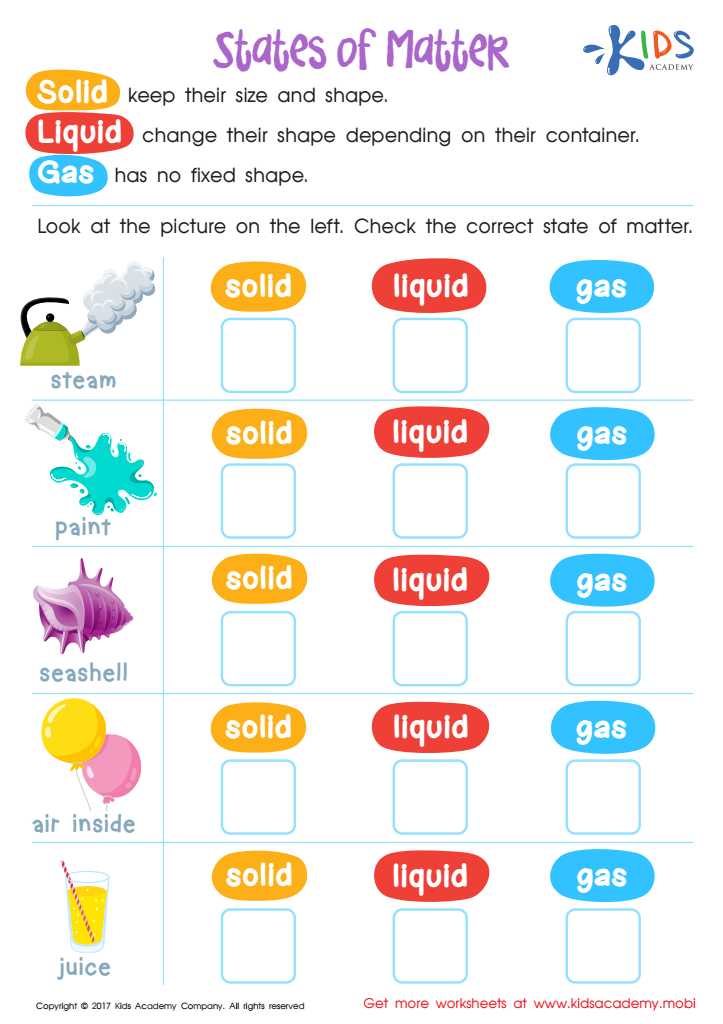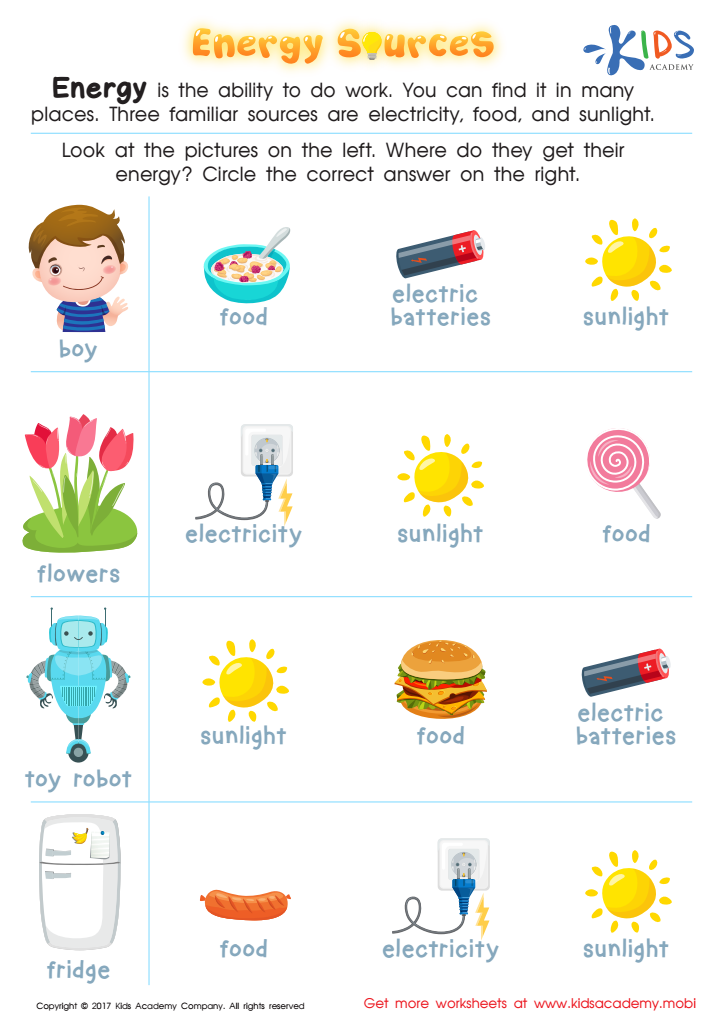Physical Science Worksheets for Ages 6-9
3 filtered results
-
From - To
Explore our engaging Physical Science worksheets designed for children aged 6-9! Tailored to spark curiosity and understanding of the natural world, these printable resources cover essential topics such as matter, energy, forces, and simple machines. Each worksheet is crafted to stimulate learning through interactive activities, fun illustrations, and challenging exercises. Perfect for classroom learning or at-home practice, our worksheets encourage critical thinking and make complex concepts accessible and enjoyable. Help your child discover the wonders of physical science and develop a strong foundation in STEM education. Download our worksheets today and watch your young learners thrive!


Physical Science: States of Matter Worksheet


Sink or Float Printable


Energy Sources Printable
Parents and teachers should care about Physical Science for children ages 6-9 because it lays the foundation for critical thinking, problem-solving, and a deeper understanding of the world around them. At this age, children are naturally curious, and engaging them with physical science concepts helps nurture that curiosity into a lifelong love of learning.
Through hands-on experiments and interactive lessons, children can explore the principles of matter, energy, forces, and motion in a fun and relatable way. This exploration promotes scientific literacy, empowering them to ask questions and seek answers. Moreover, understanding fundamental physical science concepts encourages kids to make connections between their everyday experiences—like why a ball bounces or why the sky is blue—thereby making science relevant to their lives.
Additionally, incorporating physical science in their education supports the development of skills that are essential in the 21st century, such as innovation and collaboration. As children learn to work with others on projects, they strengthen social and communication skills. As the world becomes increasingly driven by technology and scientific advancements, establishing a solid foundation in physical science during these formative years is key for future academic success and informed citizenship.
 Assign to My Students
Assign to My Students















